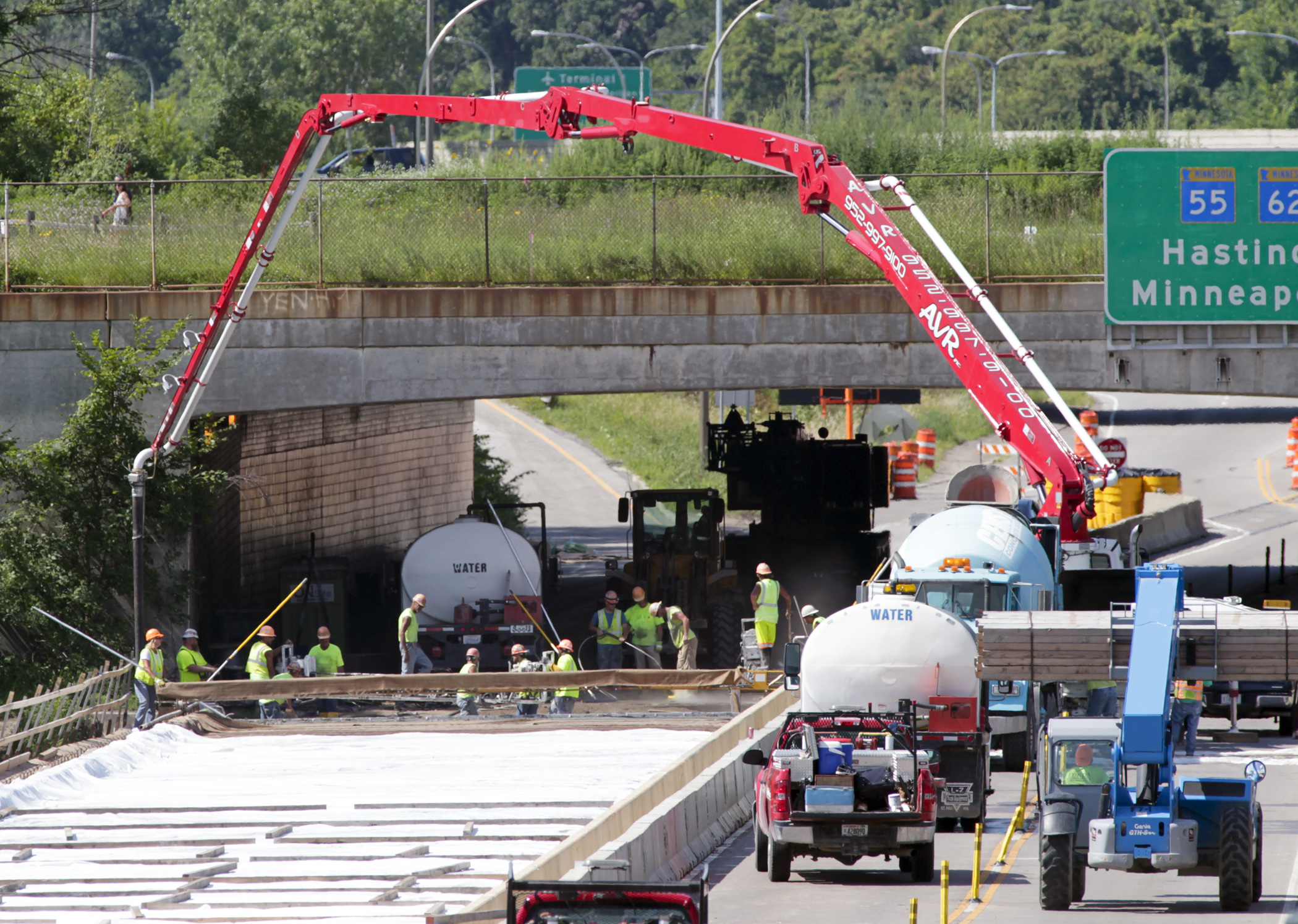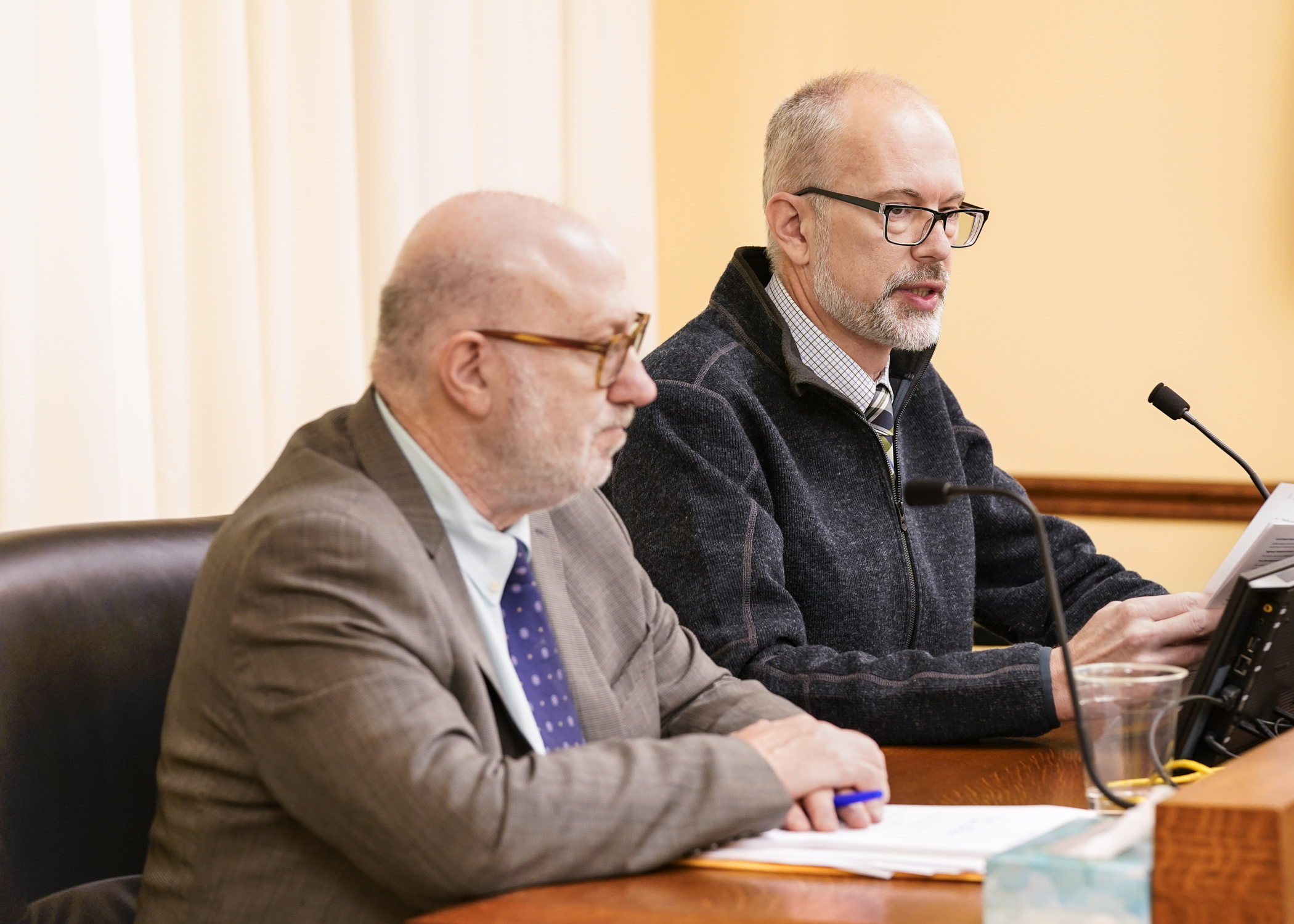Minnesota at ‘historic crossroads,’ key lawmaker says, as House DFL rolls out $9 billion transportation bill

Urging fellow legislators to seize the moment, Rep. Frank Hornstein (DFL-Mpls) has proposed investing about $9 billion on roads, bridges, train tracks, buses and safety measures.
The omnibus transportation finance bill unveiled Thursday through a delete-all amendment to HF2881 would invest in all modes of transit and benefits all parts of the state, said Hornstein.
“We are at an historic crossroads when it comes to transportation,” Hornstein told the House Transportation Finance and Policy Committee. “The federal government has stepped up in a big way because they, like many of us here, understand transportation is a key ingredient to a successful society.”
Hornstein said the state needs to take full advantage of billions of dollars from the federal Investment in Infrastructure and Jobs Act, which he compared to building the interstate system and the New Deal. Putting off investments in infrastructure won’t make problems go away; they just get more expensive, he said.
While money is available now, the long-term outlook is not as rosy.
Much of the state’s transportation funding comes from a gas tax, vehicle sales taxes and vehicle registration fees. Increased fuel efficiency and vehicle durability mean less revenue than projected.
To address funding issues coming down the road, the bill calls for increased fees, taxes and altered allocation of sales tax dollars.
“People say we can’t raise revenue in a time of surplus,” Hornstein said. “Well, I heard just a few years ago we can’t raise revenue in a time of deficit. There’s always an excuse.”
Aiming to address potential revenue shortfall, the omnibus will would:
- place a 75-cent flat fee on all deliveries of taxable products, raising about $200 million annually;
- impose a 0.75% sales tax in the metro area with proceeds going for transit, expected to raise about $500 million a year;
- raise the motor vehicle sales tax rate;
- modify the tab fee structure to increase the rate and step up the depreciation schedule; and
- start on the path to transfer all the sales tax collected on vehicle repair and replacement parts into transportation. The bill would transfer a set amount in the next five years. All the sales tax revenue generated would be dedicated to transportation starting in 2028.
[MORE: View the revenue summary]
Spending
Total transportation spending would be close to $9 billion in the next biennium including: $8 billion for the Department of Transportation; $581.8 million for the Department of Public Safety agencies involved with transportation; and $178.3 million for the Metropolitan Council.
 Testifying before the House Transportation Finance and Policy Committee, Erik Rudeen, director of government affairs at MnDOT, discusses merits of the committee’s proposed omnibus bill. (Photo by Catherine Davis)
Testifying before the House Transportation Finance and Policy Committee, Erik Rudeen, director of government affairs at MnDOT, discusses merits of the committee’s proposed omnibus bill. (Photo by Catherine Davis)The bill would authorize an additional $821 million in spending from the Trunk Highway Fund for maintenance and construction of state roads.
There is additional funding for local roads and bridges including $176.6 million more for county roads, $58.13 million more for municipalities and $19.36 million for townships. The bill would also create a dedicated funding stream for small cities with $38.7 million in the next biennium and an expectation of more than $42 million every year going forward.
Increased appropriations from the General Fund would include:
- $214.4 million for matching federal IIJA grants;
- $194.3 million to build the Northern Lights Express passenger rail running between Minneapolis and Duluth;
- $25 million for high priority intersection upgrades;
- $25 million for a redesign of the Rice Street/State Capitol area;
- $13.6 million to upgrade electric vehicle infrastructure;
- $10 million for active transportation projects;
- $5 million to add a second daily train to Chicago. The amount would then be set at $4.75 million annually starting in the next biennium;
- $2.25 million for statutory rail grade crossing improvements; and
- $1 million one-time increase to Safe Routes to School.
[MORE: View the spreadsheet]
Policy
Many of the new policies would address rider comfort and safety, such as a proposal by Rep. Brad Tabke (DFL-Shakopee) for employing people in a transit rider investment program who would offer directions, check fare payments and help enforce rules.
Other policy provisions in the bill would:
- establish a Traffic Safety Advisory Council;
- plan for signal priority to buses and create a free bus fare pilot project;
- authorize a process to establish safe road zones, which could have a temporary or permanent speed limit set by MnDOT;
- increase identification and driver’s license application fees by about $5 in most cases;
- prohibit drivers from holding a cell phone instead of law enforcement having to prove the phone was in use;
- allow some remote driver’s license renewals;
- increase the number of rail safety inspectors from four to six;
- require that metropolitan comprehensive plans describe how they might increase or reduce greenhouse gas emissions;
- establish a Highways for Habitat program on public right-of-ways; and
- allow some demographic information to be collected on driver’s license applications.
***
What’s in the bill?
The following are selected bills that have been incorporated in part or in whole into the omnibus transportation finance bill:
Related Articles
Search Session Daily
Advanced Search OptionsPriority Dailies
Speaker Emerita Melissa Hortman, husband killed in attack
By HPIS Staff House Speaker Emerita Melissa Hortman (DFL-Brooklyn Park) and her husband, Mark, were fatally shot in their home early Saturday morning.
Gov. Tim Walz announced the news dur...
House Speaker Emerita Melissa Hortman (DFL-Brooklyn Park) and her husband, Mark, were fatally shot in their home early Saturday morning.
Gov. Tim Walz announced the news dur...
Lawmakers deliver budget bills to governor's desk in one-day special session
By Mike Cook About that talk of needing all 21 hours left in a legislative day to complete a special session?
House members were more than up to the challenge Monday. Beginning at 10 a.m...
About that talk of needing all 21 hours left in a legislative day to complete a special session?
House members were more than up to the challenge Monday. Beginning at 10 a.m...